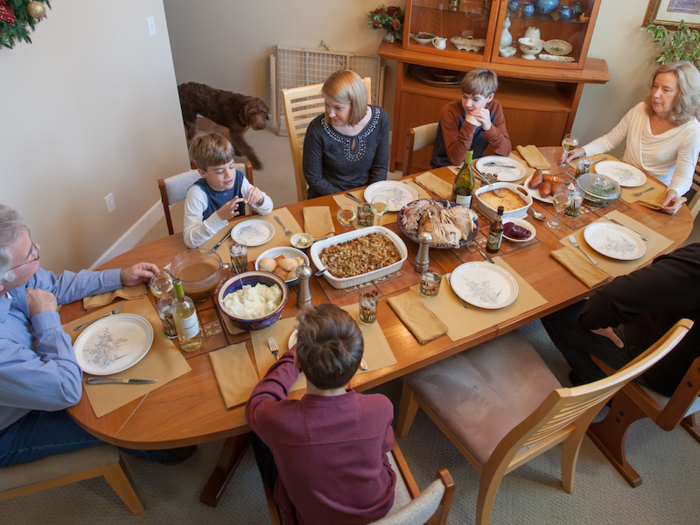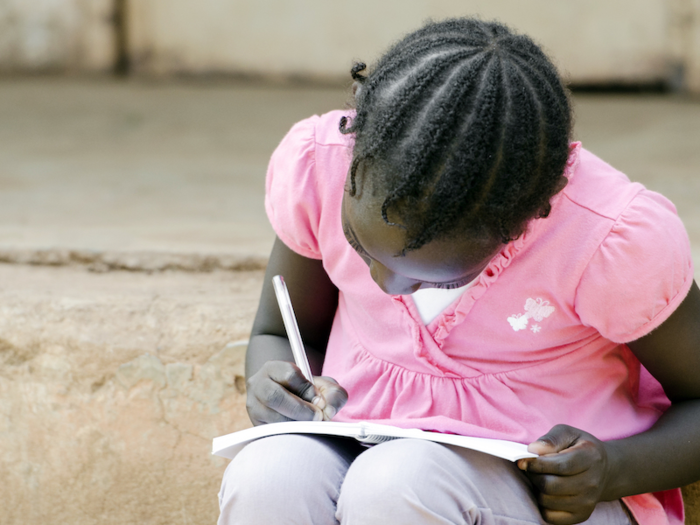- Home
- slideshows
- miscellaneous
- 10 old-fashioned manners kids aren't taught anymore
10 old-fashioned manners kids aren't taught anymore
1. Talking in person more than via technology

2. Addressing adults by their last names

Charles MacPherson, founder and president of Charles MacPherson Associates, a training and recruiting firm for private household staff, said that children used to always call adults by their surnames, Mr. or Mrs. X, as a form of respect.
"Today, however, our society is much more casual," he told Business Insider in an email. "Children are not often taught to do this, so it is no longer practiced."
Gaché said she agreed. “Now, it is no longer in fashion, and adults are often encouraging kids to call them by their first names as a way to express to children that they are equals,” she said.
3. Standing for introductions

When you meet someone new, do you stand up to say hello?
"In years past, little boys were taught to stand and girls were taught to stay seated," Gottsman said. "Today, it's correct to teach your children that both girls and boys stand for introductions to show respect for themselves and the other person."
4. Sitting down for family dinner

Gottsman said that kids sitting down and eating dinner with their families is a lost art. "Families are often busy and don’t sit down to a nightly meal," she said. "Dining skills often get pushed aside while fast food is the norm when running from one extracurricular activity to another."
5. Knowing how to properly set a table

No longer sitting down for a family meal also means no longer formally setting the table, Gaché said. "Dining together was a nightly event years ago, and children learned how to set a proper table with a fork, knife, spoon, napkin, and water glass," she said.
"Today, family members arrive home at different times, so there is no such thing as sharing a family meal; hence, no need for a set table," she said."We're lucky if we can get kids to sit in their seats for more than ten minutes at a time."
Gottsman, too, said that kids should learn some basic dining skills that will follow them throughout their lives, such as eating from the "outside in" when using utensils, keeping the bread plate on the left and drinks on the right, passing the salt and pepper together, and always thanking the host for the meal.
6. Asking for permission

While children used to have to ask their parents for permission before taking or doing something, the same rule often does not apply today.
"These days, our society encourages them to feel free to do as they wish — they are often not taught otherwise," MacPherson said.
7. Not speaking unless spoken to

Children used to be taught to not speak unless they are spoken to, MacPherson said. "But today, children are encouraged to speak up and voice their opinions," he said.
Fox also said this old-fashioned thinking has changed. "Children are taught not to interrupt, but they are allowed to make conversation without monopolizing it and to have opinions, which are important skills to learn in today’s world," she said.
8. Getting dressed up

While casual Friday is popular in many workplaces, casual seems to be a theme for kids’ apparel these days, too. "In today’s ultra-casual society, the mere idea of wearing something fitted or slightly uncomfortable can send a child into a frenzy," Gaché said.
"Today's motto for kids seems be comfort at all costs," she said. The art of dressing and accessorizing more formally has been replaced with sweats and sensible footwear, she said.
Gottsman agreed. "We live in a casual world, but dressing appropriately for occasions that are special starts with direction from parents," she said. "Weddings, funerals, dates, theater, and Broadway shows should be treated as if they are special."
9. Being cognizant of hygiene

MacPherson said that some parents no longer seem to emphasize hygiene, such as children covering their mouths when they cough or sneeze. "There was a time when everyone was taught to have a handkerchief in their pocket to use as necessary," he said.
10. Writing thank-you notes and handwritten letters

Although it's simple to type a thank-you note to someone on your phone or computer, kids writing thank-you notes by hand used to be commonplace.
"In the age of technology when we communicate mainly by text and emojis, children should know how to write a thank-you note and address an envelope correctly," Gottsman said.
"The need for inventive, descriptive language and cursive writing is no longer considered mandatory in schools because kids are texting their messages and thanks, both long form and short," Gaché said. "As a result, putting pen to paper and popping a letter in the mail is an arduous exercise in today's world where electronic communication can transmit our sentiments in mere seconds."
Popular Right Now
Popular Keywords
Advertisement